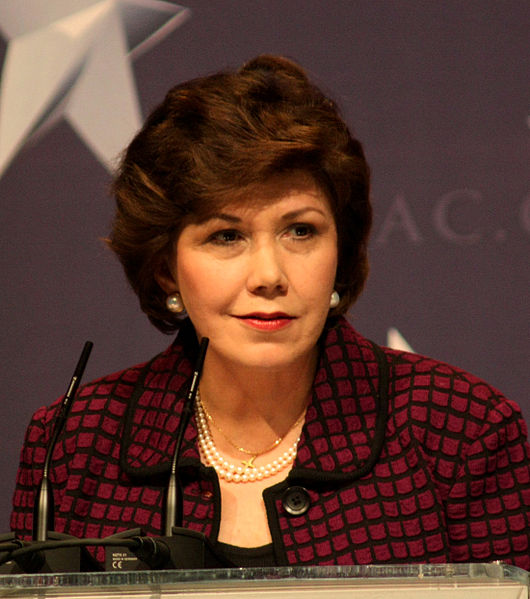After Linda Chavez served as the highest-ranking woman in President Ronald Reagan’s White House working as the Director of Public Liaison, she decided to use her knowledge of policy in writing. Chavez is now a political commentator who writes a weekly syndicated column and often appears on Fox News and radio shows as an analyst. She is also the founder of the Center for Equal Opportunity. Soon, she will finish her first series of fictional short stories.
At one point, you considered becoming a college professor. Why did you stop pursuing that career?
I started college in 1965, married in 1967, and had my first kid in 1968, so I was a student, a wife, and a mother. I had to work through school and this was also the time when affirmative action was starting.
I got involved with recruiting students, specifically Mexican-Americans. It was clear that these kids did not have the academic background to be prepared for college. Even though English was spoken in their homes, they were not proficient in standard English, so I decided that I would try to convince the English Department to let me teach a course to help incoming students. They let me do that, which is how I got started teaching.
Unfortunately, this was the time when affirmative action, in my mind, went off the rails. Instead of just being about giving kids who did not have opportunities the chance to learn skills, it became a program that was basically all about dividing students into ethnic classes. I really had a clash and then left and went on to graduate school at UCLA…. They were changing the rules so minority students were not expected to abide by the same rules and was really a lowering of standards. That’s when I left.
The title of one of your books is “An Unlikely Conservative: The Transformation of an Ex-Liberal.” What influenced that transformation of your political views?
My whole background was in literature, so I’m sort of self taught. I decided to read “Wealth of Nations” in the late 70s. I was working for a labor union, and some things didn’t make sense to me. I said, ‘This doesn’t seem to be the way the world works,’ and so I decided to read Adam Smith, and it was like on the first page I thought, ‘This is the way the world works. This makes sense.’ So by the time I went into the Reagan White House, I was on my way to being a free market capitalist. And, I was earning more and realizing the government was taking a big chunk of my money and not spending it exactly how I thought it should.
Your husband changed his political views, too. What influenced him?
My husband was a Socialist—in a more European Socialism way. He was anti-Communist, but believed the state ought to pay for things.
We were struggling students, and he wanted to buy a color television set, and he suddenly noticed that instead of how under Marxist theory a color television would always be out of the reach of the working class because capitalists would be greedy and keep pushing prices up so everything would always be out of reach, he started noticing that prices were getting cheaper every year. It was like this was his wake up call. I always tease him that if we weren’t so interested in sports that he wanted a color television that he may be a Bernie Sanders guy now.
Despite having three children early on in your career, you accomplished a lot. What is your advice for young adults who want to pursue having both careers and families?
In Washington, I found that people spend a lot of time at work that is unnecessary. They would be hanging out or just trying to get face time with the boss—I saw that a lot at the White House. I got there very early, but I left at 6 or 6:30 every day. A lot of others worked until 8:30 or 9 p.m., but they were mostly sitting around gabbing and talking.
It’s a challenge to balance both, though. I know a lot of people decided to wait to have kids. I’m actually not sure that’s the best advice. I know people who had children early and then went back to the workforce.
I also respect women who go to college and get liberal arts degrees and then spend time raising their children. It’s a very worthy aspiration. Education is never wasted. And you can use it in developing your children.
One reason women, on average, earn less than men with equal educations is that women take time out for children. That will make a difference. To me, it’s not a bad trade off.
I was able to balance both.


